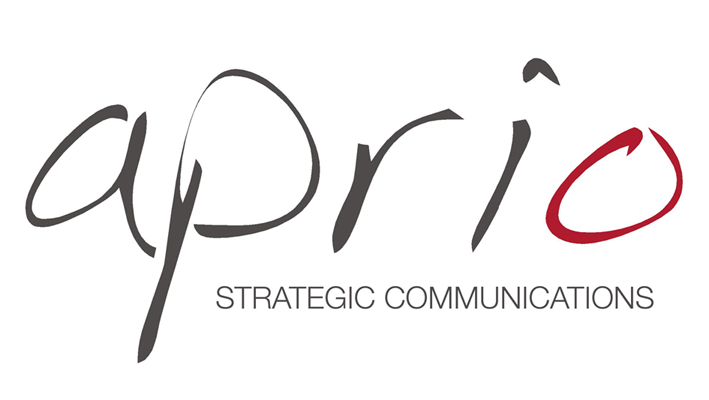Abraham Lincoln was born Feb. 12, 1809. He would be 204 years old today.
This year, the acclaimed film “Lincoln” leads the Oscar race with 12 nominations, and it has grossed nearly $221 million worldwide at the box office since its release in November.
Celebrate the 16th president’s birthday with a few bits of his wisdom that have been inspiring communicators for nearly two centuries.
"Give me six hours to chop down a tree, and I will spend the first four sharpening the ax.”
Preparation is a key ingredient for success. Careful planning and adequate preparation help to ensure a project goes smoothly. You won’t get far trying to sink a dull ax into a tree trunk—nor will you produce impressive results with a dull communications plan.
“Reputation is like fine china: Once broken it's very hard to repair.”
This is a no-brainer for PR pros, whose job it is to manage and uphold reputations—and occasionally piece together a reputation that took a nose dive from the top shelf of the proverbial china cabinet. PR people aren’t kidding when they advise clients to create a plan—before a crisis occurs—to minimize damage and protect reputations.
“Determine that the thing can and shall be done, and then we shall find the way.”
Once a goal is set, a strategy must be formed to achieve it. Keep in mind: Setting realistic, measurable goals significantly increases the chances they will be reached in an effective, timely manner and will act as steppingstones to larger aspirations.
“Don't worry when you are not recognized, but strive to be worthy of recognition.”
Not every campaign will receive glowing reviews or win awards, and not everything you do may get the credit you believe it deserves. But those who continually strive to learn from mistakes and seek ways to improve performance will be successful.
“Commitment is what transforms a promise into reality.”
Expecting instant change or success the first time around with little effort will only lead to disappointment. Through hard work and dedication, promises made both to yourself and to others will come to fruition.
“Half-finished work generally proves to be labor lost.”
Don’t scrap that project just because it’s got you mired in frustration. If you’re overwhelmed or unmotivated, call upon others for help. Discarding the project, as Lincoln said, is lost labor.
Do you have any favorite Abraham Lincoln quotes to share?
Hana Bieliauskas is a project manager in the Columbus, Ohio, office of CMA (@CMABuildsTrust), a national public relations agency based in Kansas City, Mo. Follow her on Twitter @hanab08. A version of this story first appeared on the CMA blog.
This year, the acclaimed film “Lincoln” leads the Oscar race with 12 nominations, and it has grossed nearly $221 million worldwide at the box office since its release in November.
Celebrate the 16th president’s birthday with a few bits of his wisdom that have been inspiring communicators for nearly two centuries.
"Give me six hours to chop down a tree, and I will spend the first four sharpening the ax.”
Preparation is a key ingredient for success. Careful planning and adequate preparation help to ensure a project goes smoothly. You won’t get far trying to sink a dull ax into a tree trunk—nor will you produce impressive results with a dull communications plan.
“Reputation is like fine china: Once broken it's very hard to repair.”
This is a no-brainer for PR pros, whose job it is to manage and uphold reputations—and occasionally piece together a reputation that took a nose dive from the top shelf of the proverbial china cabinet. PR people aren’t kidding when they advise clients to create a plan—before a crisis occurs—to minimize damage and protect reputations.
“Determine that the thing can and shall be done, and then we shall find the way.”
Once a goal is set, a strategy must be formed to achieve it. Keep in mind: Setting realistic, measurable goals significantly increases the chances they will be reached in an effective, timely manner and will act as steppingstones to larger aspirations.
“Don't worry when you are not recognized, but strive to be worthy of recognition.”
Not every campaign will receive glowing reviews or win awards, and not everything you do may get the credit you believe it deserves. But those who continually strive to learn from mistakes and seek ways to improve performance will be successful.
“Commitment is what transforms a promise into reality.”
Expecting instant change or success the first time around with little effort will only lead to disappointment. Through hard work and dedication, promises made both to yourself and to others will come to fruition.
“Half-finished work generally proves to be labor lost.”
Don’t scrap that project just because it’s got you mired in frustration. If you’re overwhelmed or unmotivated, call upon others for help. Discarding the project, as Lincoln said, is lost labor.
Do you have any favorite Abraham Lincoln quotes to share?
Hana Bieliauskas is a project manager in the Columbus, Ohio, office of CMA (@CMABuildsTrust), a national public relations agency based in Kansas City, Mo. Follow her on Twitter @hanab08. A version of this story first appeared on the CMA blog.
